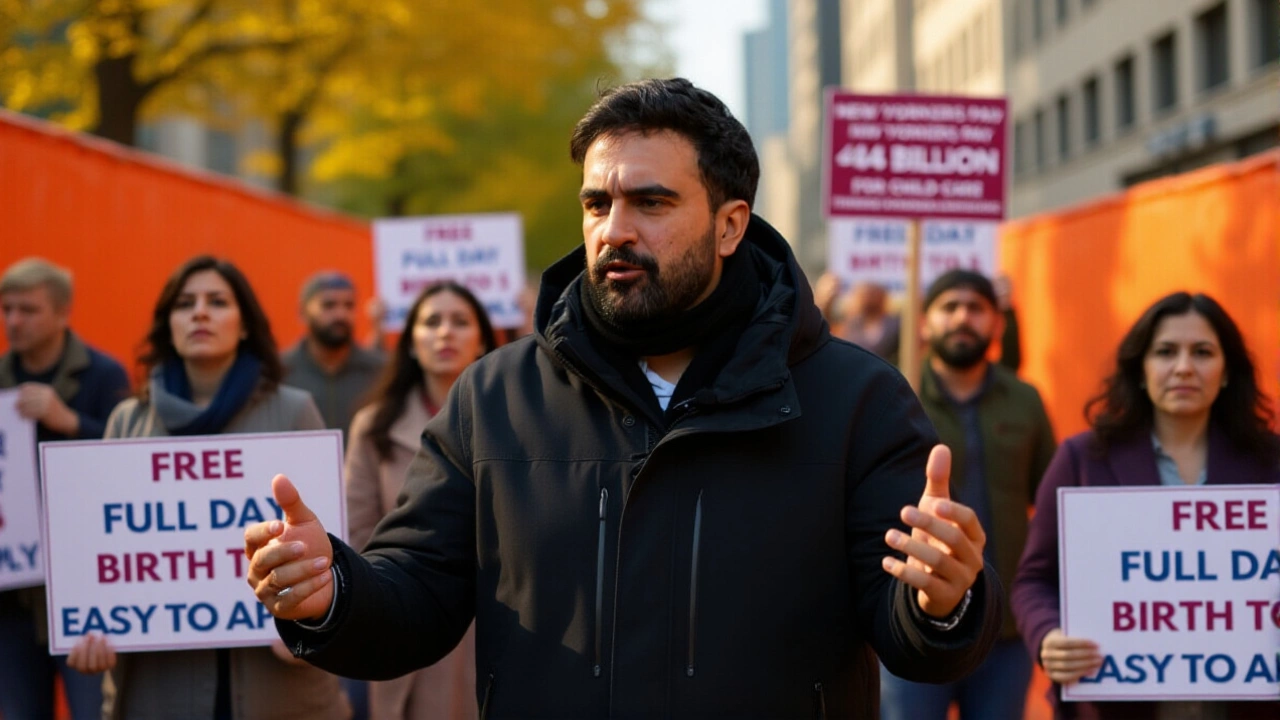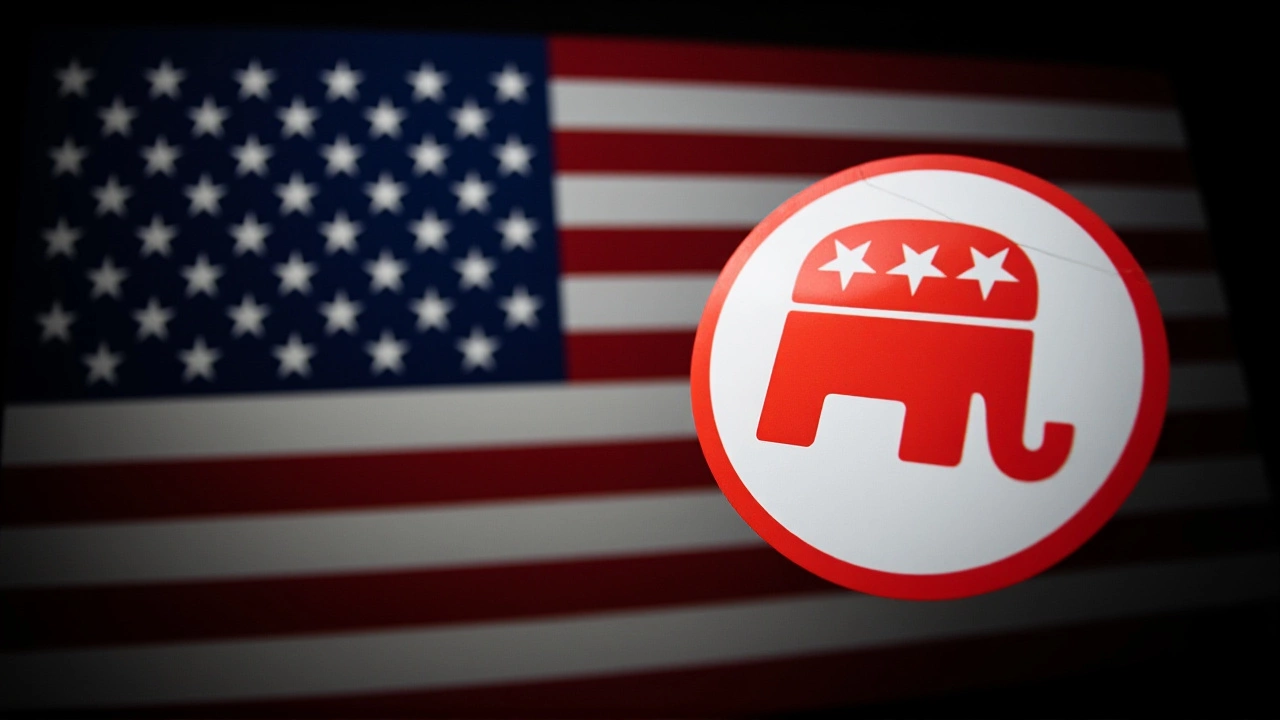When Peter Giunta typed "I love Hitler" into a private group chat, he may have just set off the biggest internal crisis the Republican National Committee has faced since the Capitol riot of January 6, 2021. The leaked messages, published by Politico on October 14, 2025, revealed a stream of antisemitic slurs, calls for gas chambers and outright support for slavery among leaders of the Young Republican National Federation. The fallout was immediate: state Democrats demanded condemnation, a governor urged a congressional investigation, and analysts warned of an eight‑point swing away from Republicans in the 2026 midterms.
Background: The Young Republican National Federation and the RNC
The Young Republican National Federation (YRNF) is a volunteer‑run network of more than 200 local chapters spanning 49 states, boasting roughly 50,000 members aged 18‑40. While the federation operates independently, its leaders often sit on RNC‑linked committees and endorse the party’s top brass. Since January 2024, the Republican National Committee (RNC) has been chaired by Michael Whatley, a former Georgia real‑estate developer who succeeded Ronna McDaniel after a contentious winter meeting in Dana Point, California.
Whatley's election on January 26, 2024, was secured with 158 of the 168 RNC member votes—a narrow but decisive win that signaled the party’s shift toward more hard‑line, MAGA‑aligned factions. Throughout 2024 and into 2025, Whatley cultivated relationships with YRNF influencers, most notably Giunta, who publicly congratulated the chairman in a January 2024 tweet and lauded his "transformational" leadership in subsequent speaking engagements.
Leaked Messages: What the Chat Actually Said
According to the POLITICO investigation, the encrypted chat—active from at least March 2024 through September 2025—contained dozens of messages that crossed every line of civil discourse. Giunta, identified by his handle "PatriotPete," posted a string of remarks that included:
- "I love Hitler" (dated June 12, 2024)
- "We should send the media to gas chambers" (July 3, 2024)
- References to "monkeys" and "watermelon people" when describing Black Americans (August 2024)
- A call to "bring back slavery" as a "solution to crime" (February 2025)
Other participants echoed Giunta’s language, laughing at the prospect of "sending political opponents to concentration camps" and praising historical figures who promoted segregation. The tone was not merely joking; multiple screenshots showed the messages were shared with an expectation of serious discussion, not sarcasm.
These excerpts directly contradict the RNC’s public policy, which in a July 2024 press release promised a "zero‑tolerance" stance on hate speech. The disparity sparked outrage among Democratic officials and civil‑rights groups, who called the revelations "a stark example of extremist infiltration".
Political Reactions: From State Parties to the Governor’s Office
On the same day the story broke, the North Carolina Democratic Party issued a press release from Raleigh. Mallory Payne, its senior communications advisor, demanded that Whatley "publicly condemn Peter Giunta" and asked, "Do North Carolinians deserve a chairman who turns a blind eye to such vile rhetoric?"
Just 24 hours later, California Governor Gavin Newsom called for a formal congressional inquiry, directing the request to the U.S. House Committee on Oversight and Accountability. In his Sacramento‑based statement, Newsom called the chat "vile, antisemitic and violent" and urged lawmakers to hold hearings on "extremist infiltration of national political organizations".
The governor’s move added federal pressure to what had so far been a state‑level backlash. While the RNC has not issued a full response, a spokesperson confirmed that Whatley was "aware of the allegations" and would "address them at the upcoming meeting in Phoenix on November 1, 2025".

Potential Electoral Fallout
Non‑partisan analysts at the Brookings Institution weighed in on October 15, 2025. Senior Fellow Elaine Kamarck projected that the scandal could shave up to eight percentage points from Republican support in suburban districts during the November 2026 midterm elections. Her model compares the current scandal to the 2019 "Kavanaugh" hearings, which saw a 3‑point dip, but notes that the explicit hate‑speech element makes this a much more damaging episode.
What that means for the party’s Senate and House races is clear: swing voters—especially independents and moderate Republicans—are likely to re‑evaluate their loyalty if the RNC does not distance itself from Giunta’s remarks. In Virginia, a recent poll showed 57 % of suburban voters view the party as "out of touch" after the leak.
What Happens Next? Calls for Accountability and Legal Scrutiny
With the RNC’s next internal meeting slated for November 1, 2025, insiders say the leadership will face a choice: either issue a swift, unequivocal condemnation of Giunta and launch an internal review, or risk a prolonged media firestorm that could spill into the 2026 primaries. The House Oversight Committee has yet to schedule hearings, but Newsom’s demand has already been referenced in a draft agenda released on October 20, 2025.
Legal experts also note that while private group chats are generally protected under the First Amendment, any coordinated effort to incite violence could attract federal investigation under the 2020 “Hate Crimes Prevention Act.” The Department of Justice’s Civil Rights Division has opened a preliminary review, though no charges have been filed.

Historical Context: From the Capitol Attack to Now
The YRNF scandal arrives exactly 1,702 days after the January 6, 2021 assault on the U.S. Capitol—a benchmark many political scientists use to gauge the party’s capacity for self‑policing. Back then, RNC chair Ronna McDaniel faced criticism for not acting swiftly against extremist members. The current crisis tests whether Whatley, a newcomer with a reputation for loyalty to former President Trump’s base, can steer the ship through turbulent waters.
In the broader arc of American politics, leaked internal communications have repeatedly reshaped public perception. The 2016 "Panama Papers" of the Democratic Party, the 2020 "Moscow Pen" emails of the Trump campaign—each incident forced parties to confront uncomfortable truths. This latest leak could become the defining moment for a generation of Republican activists.
Key Facts
- Leak date: October 14, 2025 (Politico)
- Primary participants: Peter Giunta, Michael Whatley
- Organization involved: Young Republican National Federation
- Political response: Calls for condemnation from the North Carolina Democratic Party and a congressional probe requested by Governor Gavin Newsom
- Projected electoral impact: Up to an 8‑point loss in suburban districts for Republicans in the 2026 midterms (Brookings analysis)
Frequently Asked Questions
What exactly did Peter Giunda say in the leaked chat?
Giunda posted a series of hateful messages, including "I love Hitler," calls to send political opponents to gas chambers, and derogatory slurs such as "monkeys" and "watermelon people" when referring to Black Americans. The chat also featured a proposal to "bring back slavery" as a crime‑reduction strategy. These statements were dated between June 2024 and February 2025.
How has the Republican National Committee responded so far?
The RNC has issued a brief statement saying Chairman Michael Whatley is "aware of the allegations" and will address them at the federation’s November 1 meeting in Phoenix. No formal condemnation or disciplinary action has been announced yet.
Why did Governor Gavin Newsom call for a congressional investigation?
Newsom argued that the messages demonstrate "extremist infiltration" of a national political organization and could indicate coordinated hate‑speech or incitement. He urged the House Oversight Committee to hold hearings and consider whether federal laws on hate crimes were violated.
What impact could this scandal have on the 2026 midterm elections?
Brookings senior fellow Elaine Kamarck estimates the controversy could cost Republicans up to eight percentage points in suburban districts, especially among independents and moderate voters who view the party as embracing extremist rhetoric.
Has any legal action been taken against the chat participants?
No criminal charges have been filed yet. However, the Department of Justice’s Civil Rights Division has opened a preliminary review to determine if any statements cross the line into incitement under the 2020 Hate Crimes Prevention Act.
